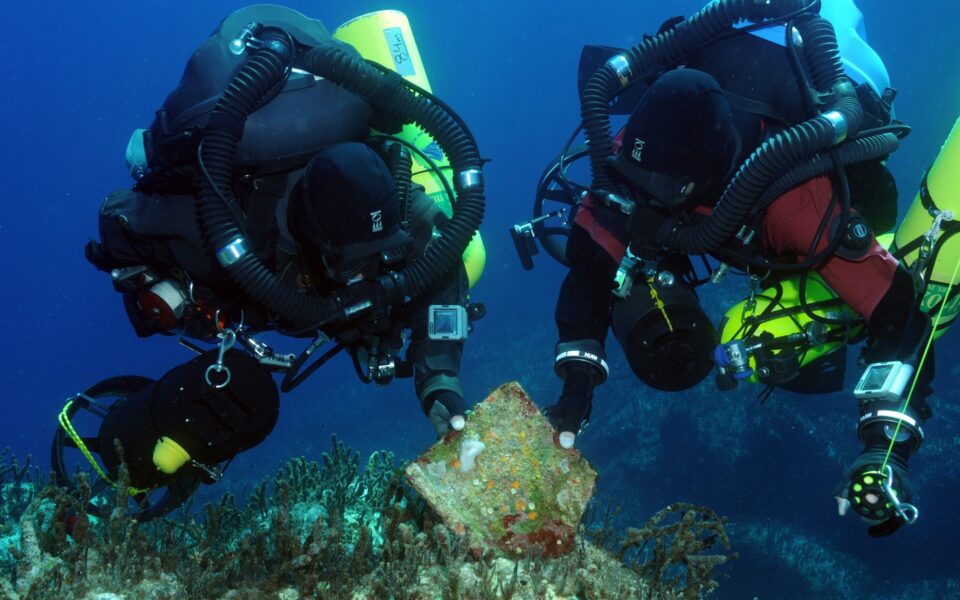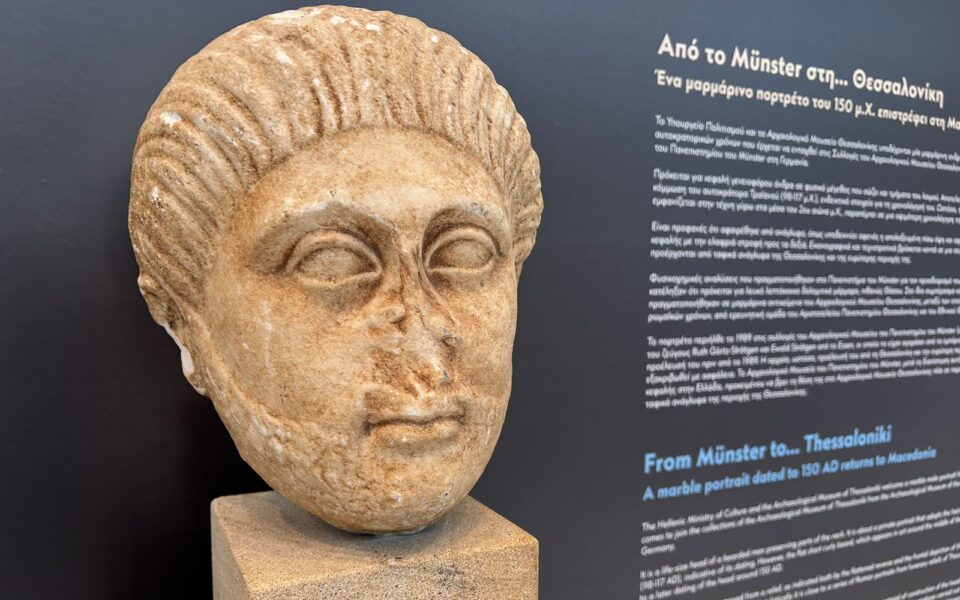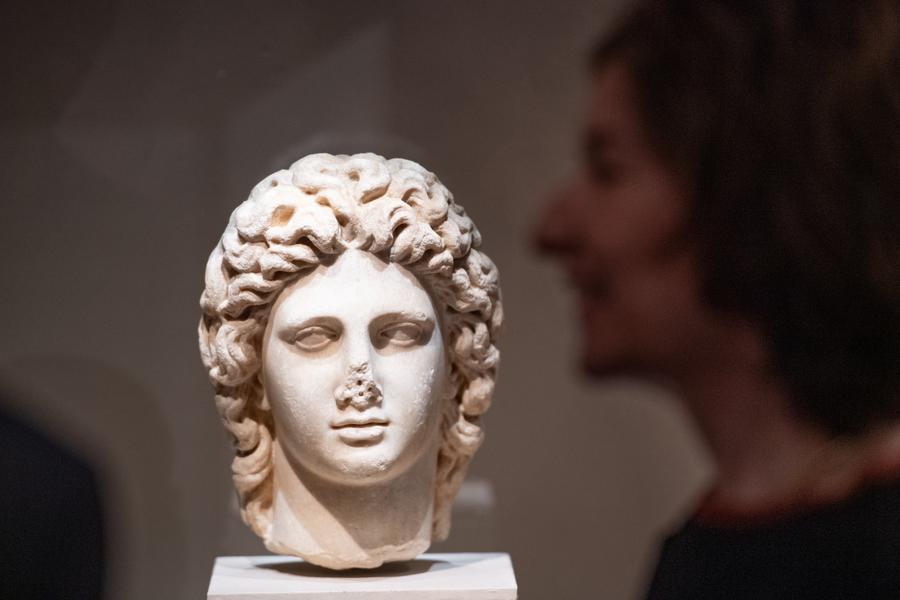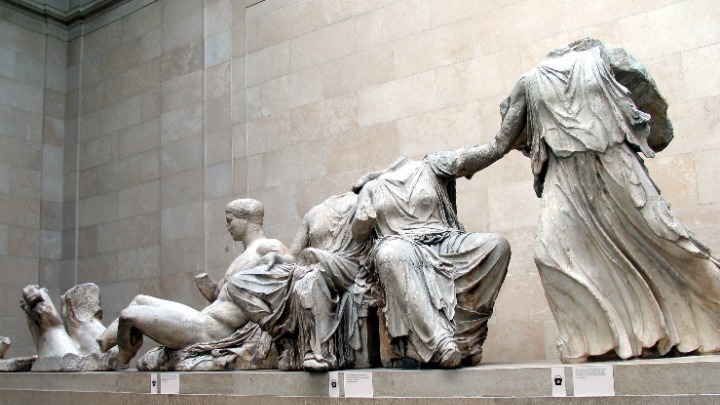“’Man of God’: A Work of Beauty and Love”


In these days, very rarely do we find made a film made about a true saint, let alone a film about a true saint that is very well produced. Yelena Popovic has written, directed, and produced in partnership with Mt. Athos’ Vatopaidi Monastery, the St. Maxim the Greek Institute, and Europgroup Ltd. such a film with the St. Nektarios biopic “Man of God.”
In this look at the life of the long-suffering saint, Aris Servetalis in the lead role as St. Nektarios Kefalas seemingly channels and incarnates the disposition and energy of the saint who left this life a century ago. By Servetalis’ performance, it is as if the accounts of the saint in books and as portrayed in photos and iconography has animated for us for a nearly two-hour period. Such is the convincing weight and power of Servetalis’ portrayal of the holy man. It is as if Servetalis was born to play St. Nektarios. That is just how good he played the role and, as a result, how he was the anchor for the entire film.
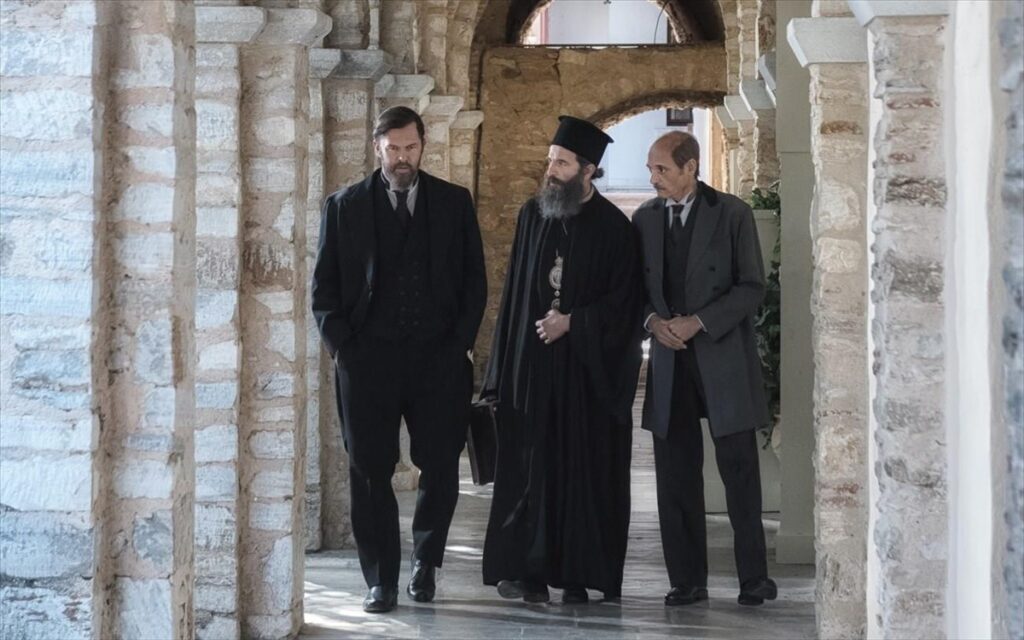

The audience at the beginning of the film is introduced to St. Nektarios in the latter half of the nineteenth-century when he was serving in Egypt as an auxiliary bishop to the Patriarch Sophronios of Alexandria and All Africa. Nektarios enjoyed the love of most of the people in Egypt, but not all of the people there. There is a scene which depicts fellow hierarchs and clergy bad-mouthing Nektarios with all kinds of accusations and slander to the Patriarch in an attempt to have him removed and banned from the Patriarchate. These clergymen said and did these things out of their envy and jealousy of Nektarios’ growing popularity.
Though the ordaining bishop of Nektarios and the one who was responsible for bringing him to Egypt in the first place, Sophronios chose to believe the slanderous accusations leveled against Nektarios without granting him a meeting, having a conversation, or giving him an opportunity to offer his defense. Thus, he was removed from his position and banned from the Patriarchate. In spite of Nektarios’ attempts to do so, the two would never speak, correspond, or see each other again. To use a term of today, Sophronios ‘ghosted’ Nektarios.
With nowhere to go, Nektarios leaves Egypt with his letter of banishment in hand and travels to Greece where unbeknown to him the trouble he encountered in Egypt was to beleaguer him for the rest of his life upon until his death in 1920. Upon his arrival in Athens, when he goes to introduce himself to the Archbishop of Athens, the Archbishop refuses to see him because the Patriarch of Alexandria had already sent a “warning” letter to the Archbishop which stated that he had removed and banned Nektarios due to serious moral and ethical reasons involving women and money saying that he was rebellious and ambitious wanting to be the Patriarch. Without the Archbishop’s permission, Nektarios could not serve in Greece and thus could not earn a living in church service there.
Shunned and ignored by his fellow bishops and clergy due to these slanders and reputation defamation by his jealous enemies which followed him to Greece, this would begin a two-year period of homelessness, alienation, loneliness, and near despair for the saint. During this time, as would throughout his life, he ministered to the homeless and the downtrodden out of his own limited resources. In one of the scenes, St. Nektarios sees a beggar and sits next to him. Two priests walk by in their flowing robes ignoring both of them and oblivious to their needs. St. Nektarios would give him the shoes off of his feet.
Then, the first of three events occurred which would alter the course of St. Nektarios’ life. He was shown some compassion by a local bishop who advised him to see the Minister of Education and Religion to obtain a license to preach as a lay preacher which he did with great gladness and humility. Upon meeting with the government bureaucrat, who even questioned his status as a Greek citizen, he explained his plight and even said that he had written the Ecumenical Patriarch of Constantinople about his situation and received no reply.
Nektarios received this permission from the government official and he was assigned to the island of Evia as a preacher. This would be another discouragement for him because the people had already heard the rumors about him and heckled and mocked him while he preached and eventually would walk out of churches upon seeing he was there on the pulpit. Without wanting to endure the further personal humiliation there and chaos in the churches, he resigned his position as preacher.
It was during this time, that he traveled to Mt. Athos and certain ascetics there through spiritual discernment recognized him for the person whom he truly was and not the one maligned by his enemies. After his visit to Mt. Athos, the second turning point in his life occurred when yet again going fruitlessly to see the Archbishop at the Synod, a laymen who knew of the greatness of Nektarios had compassion on him and through a course of events had him appointed as the Director of the struggling Rizarios Ecclesiastical School and High School.
His first endeavor was to restore the dilapidated Church of St. George which served as the Rizarios’ chapel because he believed that the chapel should be the center of the school campus. There at the Rizarios, Nektarios would begin to flourish as a teacher and writer. Though the faculty, staff, and students knew of his damaged reputation due to the rumors, slanders, and accusations surrounding him, he through his example of love, humility, kindness, piety and patience transformed by God’s grace the lives of the people, even the most hardened, around him. Nektarios would even do the janitor’s job when the janitor was sick and could not work so that the janitor would not lose his job!
Finally, the third event occurred which would redirect the course of his life when a Divine Providential meeting with a blind young woman named Xenia (Korina Anna Gougoli) who
expressed her desire and the desire of her friends to become nuns under the spiritual care of St. Nektarios. He then asked the Metropolitan Theoklitos who was the bishop of Aegina to grant him permission to open a convent on Aegina at the site of an abandoned ruined monastery there. Metropolitan Theoklitos gave St. Nektarios permission to do so. At that time in 1908, Nektarios moved from Athens to Aegina to help the novice nuns build their monastery. Again, the slanders and accusations would follow him trying to derail his attempts at founding the monastery. Until finally, through a course of events, Theoklitos himself began slandering and persecuting him denying that he had ever given Nektarios permission for a monastery and accused him of immorality with the women of the convent. With this, Theoklitos informed him that he would never take the request to the Holy Synod for the convent to be recognized as an official monastic community and that he even was taking steps to shut the convent down.
Now in ailing health, Nektarios sought the counsel of lawyers to help protect the nuns and the convent which he helped found. The saint was advised to incorporate the convent as a non-profit in an attempt to keep it independent and shield it from the control of Theoklitos and the Synod. It would be four years after the saint’s death that the convent would be officially recognized by the Synod as an official monastic community. Nektarios would be afflicted with prostate cancer and die in 1920 in Evangelismos Hospital which was across the street from the Rizarios School. In one final supernatural act, while on his deathbed, the saint’s undershirt was removed by one of the nun’s caring for him and placed on the adjacent bed of a paralyzed man (Mickey Rourke) who was subsequently healed.
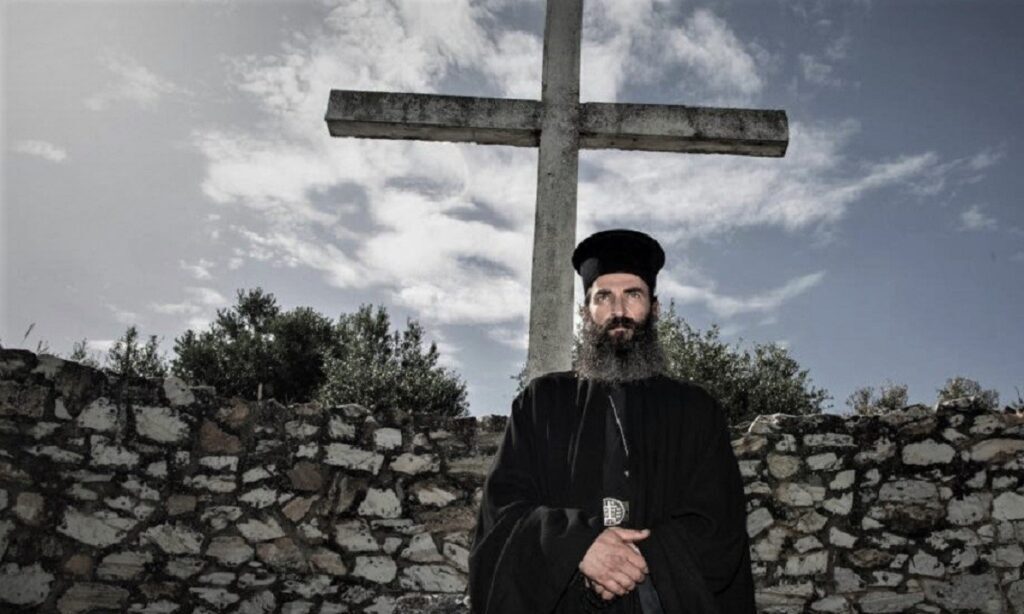

The message of this movie is quite clear. In many ways it serves as an historical modern-day parable of persistence, faith, forgiveness, hope, and love. In spite of all of the obstacles, persecutions, humiliations, and setbacks that Nektarios faced, he persevered to struggle on in seeking and serving the Lord Jesus and being of service to all of His creation. When his loyal assistant Kostas (Alexander Petrov) during his years at the Rizarios School comes to visit him on Aegina in the latter part of the film, Kostas tells Nektarios that if what was done to the saint was done to him, he would never go to church again. Nektarios responds with his usual long-suffering forebearance in telling him that despite the wrongs and injustices done by the leaders and members of the institutional Church, the spiritual Church the Bride of Christ Herself is not to blame.
The story is one which is universally understandable whether one is an Orthodox Christian or not. It speaks to what it means to be a Christian or just a plain kind human being in these modern times. It also speaks to the uncomfortable reality that for certain people, they have to do this in spite of the Church and not because of it. The film clearly shows that it wasn’t the Muslim Turks or the totalitarian Marxists who persecuted St. Nektarios throughout the majority of his life until the time of his death, but rather it was at the hands of the Church by his fellow bishops, clergy, and the laity in Egypt and Greece.
This should bring the viewer to greater hope and not despair. I believe that through this film that people of all faiths or no faith cannot leave after viewing it without being moved, inspired, and maybe even transformed. It was extremely wise that this film was made in the English language, thus enabling it to have worldwide impact. The cinematography done by Panagiotis Vasilakis is absolutely beautiful and masterful in its depictions.
In summary, what Doestoevsky did for literature with the Brothers Karamazov, Popovic has done for filmmaking with “Man of God.” Both have done very well in their service with their respective works to humanity in general and Orthodox Christianity in particular. Ultimately, both remind us what the meaning of true beauty as expressed in love really is. It is with this understanding that we can truly appreciate the figure of St. Nektarios who serves to represent for us an example of a spiritual warrior for Christ. Though battered by the adversities thrown at him by the Evil One and his demonic minions, he fought to the bitter end for those whom God had sent him to serve and to protect. After all, the saints are living examples of what Jesus can do in our lives if we only want Him and let Him have control of our lives. I highly recommend this film and believe that people will be blessed in watching it.
John G. Panagiotou is an Orthodox Christian theologian, scholar, and professor. Dr. Panagiotou is a graduate of St. Vladimir’s Orthodox Theological Seminary, received his doctorate from Erskine Theological Seminary, and is completing a second earned doctorate in theology at Pontifex University-Holy Spirit College.
Source: pemptousia

